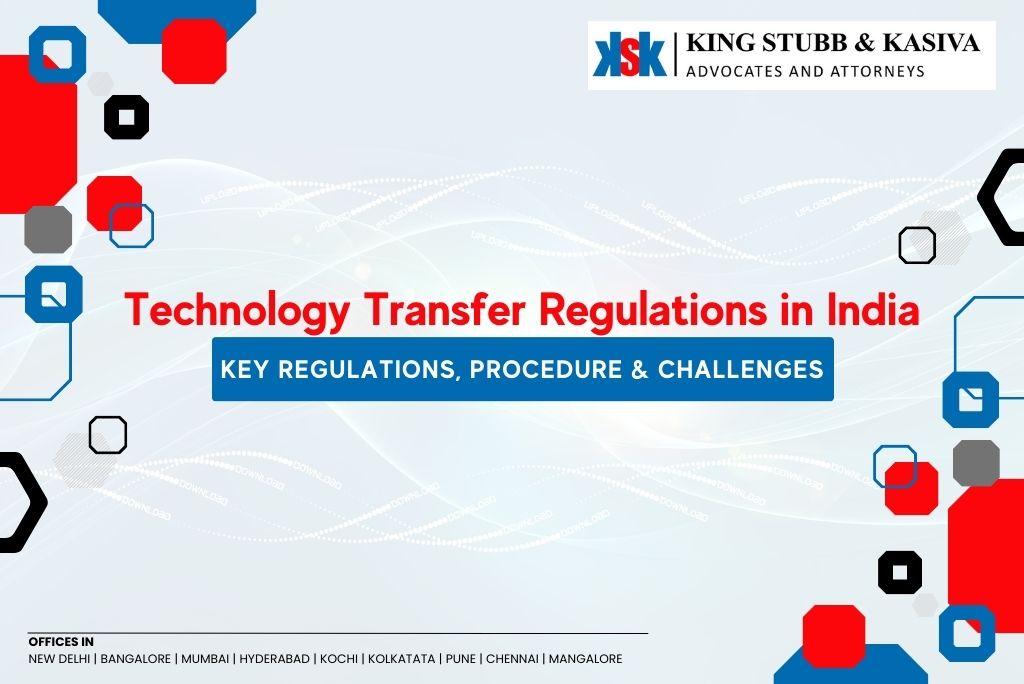

Toretain or strengthen a business, and competitive position in the market, new technology invention or adoption has become quintessential. Companies in industries like the extraction or commercialization of raw materials may rely on new technologies to increase the efficiency of their raw material extraction through the improvement of their production processes or the acquisition of new machinery and equipment. Companies also leverage modern technology to enhance management structure, control, and communication, or to effectively market their products. Technological Innovation is an essential component of every company’s competitive strategy.
Technology Transfer refers to the transfer of a technology, knowledge, know-how, or facility from one person, business, or organization to another. It enables partners to share their expertise to expand into new markets, commercialise a new good or service, or enhance an already existing good or process, and to sell their goods/services swiftly.
The transfer of the exclusive rights to a patented technology or the permission to use a specific technology or know-how occurs through the establishment of legal relationships between the “transferor,” who is the owner of the exclusive rights or the supplier of the know-how, and the “transferee,” who purchases them.
Technology Transfers and their agreements are important as –
1. They strengthen commercial ties
2. TT Agreements make a legally-binding, contractual agreement that is enforced by both parties.
3. Handle intellectual property, including ownership, licencing, and royalties (such as patents, copyrights, trademarks, and industrial designs).
4. Help in accessing technology
5. Provide adaptable protection for one or more categories of intellectual property rights.
6. Resolve disputes over contracts by referring to the relevant terms included in the Technology Transfer agreement and provisions of Technology Transfer Regulations valid in India,
7. Enable the non-licensing transfer of technology pertaining to methods, know-how, and trade secrets.
8. Identify the goal of technology transfer – creation of new goods, expansion into new markets, legal and tax implications, and litigation rights.
The Technology Transfer Regulations in India are as follows: –
Technology Transfer Agreements (“TTA”) would be deemed anti-competitive if they result in the abuse of a market position by imposing unreasonable terms or if they go beyond what is necessary to maintain such intellectual property rights. The following technology transfer agreements may be deemed anti-competitive and thus null and void:
Guidelines for Transfer of Technology in Pharmaceutical Sector
Technology transfer involves a planned, organised strategy with data documentation that covers all stages of development, manufacturing, and quality control, as well as educated, competent individuals operating within a quality system. Sending units (SU), receiving units, and the unit overseeing the processare often included in a system.
Technology transfer is essential to the process of discovering novel drugs and developing new pharmaceuticals. Data gathering, data evaluation, regulatory impact, with a focus on any modification approvals, analytical validation, pilot or full-scale process batch, and stability set down are important steps of the process.

Technology Transfer’s Significance to the Pharmaceutical Industry:
There are two ways to share knowledge and information about technology: formally, through technology transfer agreements, and informally, through the transmission of expertise.
Transferring intellectual property from one organisation to another is done through a Technology Transfer Agreement (“TTA”). TTA is used to refer to a wide range of contracts that are meant to cover the procedure of transferring ownership or the right to use a certain technology from one party to another.
The approval process for foreign technological collaboration is as per FEMA requirements, through automatic route and on approval from RBI.
The Project Approval Board evaluates the merits of any other applications for foreign technology agreements that do not fulfil the requirements for automatic approval (PAB).
Applications for such ideas should be sent to the Department of Industrial Policy Promotion, Ministry of Industry, Udyog Bhawan in Form FC/IL (SIA), according to the secretariat for industrial assistance. No fees are to be paid. It takes 4 weeks to get approval after submitting an application.
The following rules would apply to foreign financial/technical collaborators who have previously engaged in business or have ties to India:
India has invested a large amount of public money in creating top-notch research institutes and providing them with enough funding. It is crucial that the technology created by these institutions be commercialised and that society or the government receives the advantages. Thus, a strong technology transfer policy is essential.
To overcome the difficulties of a fast-paced technology transfer, a thorough process map with a clear sequence of activities may be used to launch technology transfer and production. For which, businesses employ a control-tower strategy.The best practise for such transfer, the development of the knowledge-management infrastructure, and the use of digital and advanced analytics tools for transfers by assembling a team of top specialists and holding a hackathon based on current process maps. By doing this, we can respond promptly to any technological difficulty, enabling speedier transfers, faster delivery of essential medications, and ultimately aiding in the preservation of lives and livelihoods.
Indian Contract Act, 1972, Competition Act, 2002, Foreign Exchange Management Act, Copyright Act, 1957, Trademark Act, 1999 and Patent Act, 1970.
1. Ru0026amp;D is risky u0026amp; costlyu003cbru003e2. Uncertainty in outcome and long gestation periodu003cbru003e3. Strict adherence to time scheduleu003cbru003e4. Lack of experience in introducing first of its kind products globally.u003cbru003e5. Unethical competitionu003cbru003e6. High patent costsu003cbru003e8. Infringement
Transferring intellectual property from one organisation to another is done through a Technology Transfer Agreement (TTA). It is used to refer to a wide range of contracts that are meant to cover the procedure of transferring ownership or the right to use a certain technology from one party to another. TTA’s are essential tools for making sure that new innovations are produced via collaboration between various academic and commercial organisations in the life science industry and that current ones are utilised effectively.
[1]Item 8 of Schedule II to the Foreign Exchange Management (Current Account Transactions) Rules, 2000.